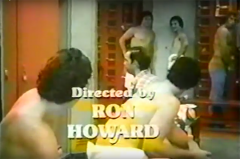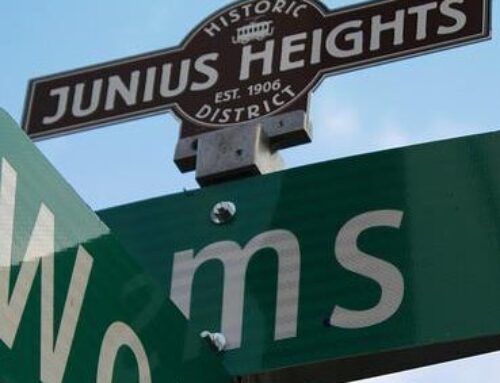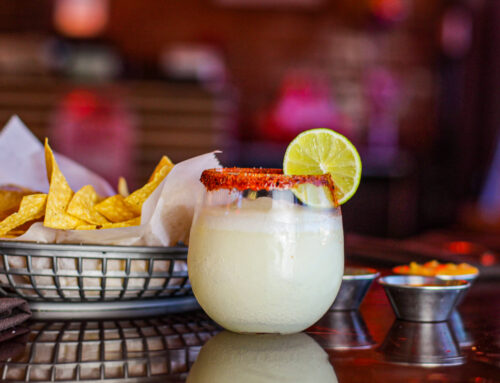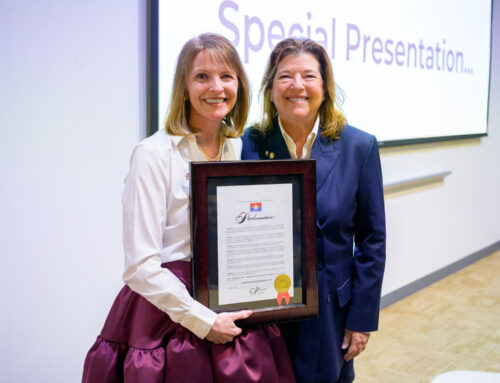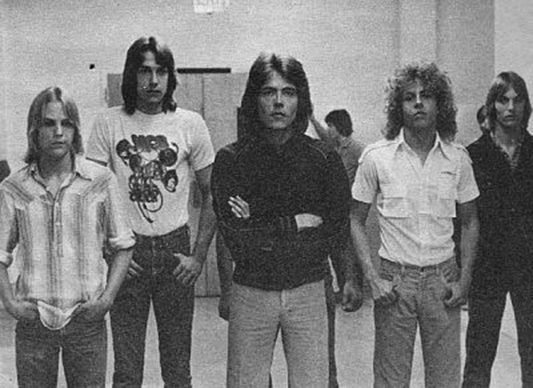
Tad Painter, Morgan Ferguson, Mark Wheeler, Mark Ridlen and John Painter portrayed members of the band Rapid Fire in Ron Howard’s 1978 TV movie “Cotton Candy.” In real life, their band was called Quad Pi.
Remember when Ron Howard made a movie in East Dallas?
In the late 1970s, at the dawn of his directorial career, Ron Howard — popularly known as his sitcom character Richie Cunningham — rolled, along with his actor brother, Clint, and much of his “Happy Days” production crew, into East Dallas to shoot a movie about rival teenage rock bands. The finished product premiered Oct. 26, 1978 on NBC. Dallas residents held watch parties and thrilled at the sight of familiar faces and places — Town East Mall, scene of the climactic Battle of the Bands; Annex Avenue in East Dallas, where the fictional garage band Cotton Candy rehearsed; the Granada movie theater on Greenville, site of the main characters’ first date; and Lake Highlands High School, which was to “Cotton Candy” what Rydell High was to “Grease.” That year, Scott Patterson was one of about 140 seniors chosen to play extras in scenes filmed on campus.
Patterson says he and his peers revered Ron Howard. The TV star shook the kids’ hands, hung out with them after filming and answered questions about his career, Patterson says.
“We knew him as Richie Cunningham. He seemed like Richie. Not bossy, but in command. He was personable, down to earth, and, in real life, he was smaller than he appeared on ‘Happy Days.’”
Mark Ridlen, a musician and DJ from East Dallas was in Quad Pi, a local act whose members portrayed bullying bandmates.
“I was young and skinny and cute then. I was a rock star,” Ridlen reminisces. Grinning wistfully, he recalls auditioning for Howard. “We did one song. We nailed it.”
Ridlen, Morgan Ferguson and John and Tad Painter, alongside actor Mark Wheeler, portrayed Rapid Fire, the popular, evil nemesis of the hero-underdog Cotton Candy.
Ridlen didn’t have any speaking lines, but he and his curly, shoulder-length locks appear in several scenes.
“They gave Tad the only speaking line, but I managed to get in front of the camera a lot. On the last day, I decided to be punk, a sad attempt in my Patty Hearst T-shirt and dog collar,” he says with a laugh.
Ridlen dined out with Wheeler and other cast members at Campisi’s on Mockingbird one night. Without naming names, he says several of them shared a joint after filming that day. “I don’t think Ron Howard was at that dinner,” he adds.
“Cotton Candy” was a far cry from Howard’s many Oscar-worthy flicks (“Apollo 13” and “A Beautiful Mind,” for example) that followed.
According to an article by The New York Times entertainment writer and Dallas native Mark Allen, it originally was intended as a pilot for a TV series.
“And it shows,” Allen writes. “Every line of the film is shouted, every action over-hashed, every sequence directed for maximum, squishy, melodramatic exploitation,” he notes.
Maybe that’s part of the reason why, when Lake Highlands alum Greg Van Dine wrote to Ron Howard Productions requesting a copy of the movie, he received this response: “That film is deep in the vault and will never, ever, let me say again, never see the light of day again.”
But “Cotton Candy” would not go quietly into obscurity. Allen cites the film’s cult appeal. It’s part of a “sub-genre of made-for-TV movies about high school teens embroiled in rock-band drama that holds immeasurable hypnotic powers over a lot of my generation,” he notes.
Patterson finally scored a copy of “Cotton Candy” in 2008, when Ridlen hosted a “Cotton Candy” anniversary screening and party and distributed “Cotton Candy” DVDs to guests.
Those parting gifts did not come easily, Ridlen says. Back when the Quad Pi parents found out their kids would be in a TV movie, they all bought VCRs so they could tape it. But the recordings that survived were of barely watchable quality. Years ago, however, Ridlen met a guy who had a perfect copy converted to DVD.
“It has the commercials and all. It’s a total time machine to Dallas in that era,” he says. They made copies for all the attendees. He says that anyone who wants to see it will have to attend the next anniversary celebration in 2018.
“I’m not putting it on YouTube,” he says. You’ll have to come to the party, which he promises will be a blast. A low-quality but watchable version of the film is available on YouTube.

